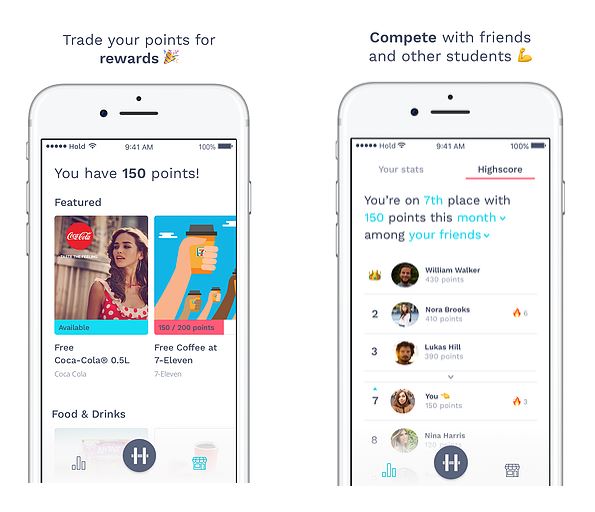Mintel has been at the forefront of predicting the trends that matter most, calling them early and accurately, over the last 15 years. In our new series, You Heard It Here First, we take a look at some of the predictions that we’ve made and where they are today.
For our first installment, we look back at the “Mintel trend ‘Switching Off,'” where we expected consumers would want to take significant breaks from their digital devices.
A decade since Mintel predicted the digital detox
In 2010, with the publication of our Switch Off trend, we declared that “technology has created inescapable levels of connectivity and exposure. Consumers need some time off, some privacy and the chance to reconnect with the real world”. Back then, those who espoused disconnecting for health or social reasons were often misconstrued as luddites, risking ridicule as Amish-style retro regressives (“them ones with the big sideys that don’t use electricity” in the memorable words of Liam Gallagher).
Our assertions were driven by the University of Notre Dame’s findings that obsessive “web-surfing” (note the terminology of the time) teens were 2.5 times more likely to be depressed, and media stories about hospital recovery programmes for Internet Addiction Disorder.
Nearly a decade ago, some 16% of UK consumers told us they wished that they “could just turn everything off and get some peace and quiet sometimes”, whilst the Caribbean nation St. Vincent and the Grenadines re-positioned its appallingly scarce internet coverage as a positive, launching “digital detox holidays”. Eight years ago, we boldly predicted a future where post would become a prized, private, illicit alternative to digital messaging, where people would hire ‘digital detectives’ to hunt down data trails and diarise and close off their time into digital ‘switch off Sabbath’ periods.

Hands off: Learning to say “No”
Almost a decade later, internet access has penetrated both passenger aviation (with the availability of on-board wifi) and pre-adulthood: three in four US teens are thought to own an iPhone and 45% of US 13-17s told the Pew Research Center that they were connected “almost constantly” in 2018.
The best way to summarise the development of the Switch Off trend is that, whilst it may have yielded few broadly-accepted lifestyle solutions, our prognosis that too much carefree connection should be limited has mainstreamed. Beyond the headline-grabbing figures for the 200 plus people who have died taking selfies in the four years to 2018, is the growing sense that inescapable connectivity is contributing – at least in part alongside economic and urban pressures – to the woes of the 33% of UK 16-20s who “feel anxious or stressed” every day – twice the average (Mintel Managing a Healthy Lifestyle – UK, 2017).
Since the University of Notre Dame’s study, the trend’s drivers have strengthened. The latest research to cement the link between youth depression and excessive social media usage is University College London’s Millennium Cohort Study, published in January 2019. This follows 41% of US teens telling Hill Holiday that social media has made them “feel anxious, sad or depressed” and 57% of UK 16-25s saying to the Youth Index that they worry about their body image. We now inhabit the era of “comparisonitis” where 62% of all UK people feel inadequate when they compare their lives to others’ online, according to Sanctus, and 1 in 50 are affected by body dysmorphic disorder (BDD) – an excessive preoccupation with a perceived flaw in appearance, as reported by the International OCD Association.
Our assertion that people would seek to assert control has been borne out to a degree in the mainstreaming of device etiquette in “leisure-capsules” like restaurants, cinemas and trains, where device use is prohibited in certain areas, and by the 33% of British luxury holidaymakers actively reducing the time they spent using devices/technology during holidays (Luxury Travel – UK, 2018).
We did not quite reach the era of ‘data detectives’ – beyond journalistic investigations of the Cambridge Analytica scandal – but the very public tribulations of Facebook have introduced an unexpected additional factor in people’s reconsideration of how best to use their time: hours spent on the site by adults fell significantly in 2018, compared to 2016. In this regard, one of the biggest successes of the Switch Off campaign to raise awareness of digital dependency, has been the reaction of the tech giants in preaching a message of ‘quality not quantity’ when it comes to offering time usage stats and limits in regard to usage of their services.
In leisure, we’ve seen analogue disconnection marketed as profoundly aspirational, therapeutic and even sexually charged in the form of adult summer camps like California’s Camp Grounded commanding “Disconnect to Reconnect” and Oregon’s Beloved, promising “deep eye contact with strangers”, but a healthy return to childhood innocence remains another constant theme, embodied most recently in the pages of Lucy Mangan’s “Bedtime Stories for Stressed Out Adults”, offering ‘tales to soothe tired souls’.

However, from a consumer perspective, ‘switching off’ was never going to succeed on puritanical grounds, where it is deemed to be some kind of vice to be denied. Instead it has evolved into a means of maximising one’s enjoyment and efficiency. Recent examples of this approach include Stella Artois’s ‘Les Pockets’ TV campaign urging drinkers to put their phones away and embrace what’s in front of them instead, Denmark’s Hold app, which tracks smartphone usage and gives students points redeemable at cafes, cinemas and Amazon as a reward for them not touching their phone and focusing instead on study and HSBC Argentina’s ‘Modo Mesa’ campaign offering diners discounts for doing the same.

The Future is in control
Health is going to be a key driver in how ‘switching off’ evolves in the future, and this will encompass everything from reacting to sleep deprivation (a problem for 57% more US teens in 2015 than in 1991, according to Monitoring the Future) to sedentary lifestyles and responding to the youth obesity time bomb.
What’s fascinating is how the youngest consumers are at the vanguard of a movement to achieve more control, learning from the mistakes – or abuse – of parents and older siblings. There is a strong analogy here with how they have rejected the habitual over-consumption of alcohol by their elders: witness the deliciously astute disgruntlement of the three-in-ten children who complained to the Norwegian Media Authority in 2016 that their parents spent “too much time on their smartphones and social media sites”.
This generation is already learning from the ‘sins of the fathers’ – or at least the big brothers and sisters – when it comes to over-connection: 17% of US millennials made “aiming to reduce their screen time” as one of their top five priorities for 2018 (Marketing to Millennials – US, 2018), whilst 56% of US 18-23s tell Mintel “I am trying to reduce the time I spend on social media”- considerably ahead of the average of 44%.
Using technology to switch off
We can expect more software solutions to help us achieve control, like those espoused by Dan Ariely, Professor of Psychology and Behavioural Economics at Duke University. He has already argued that focus and productivity would be raised – and stress lowered – if notifications were batched and sent when our mouse and keyboard usage shows that we are not in an active state of “flow”, namely working and thinking.
Another development will be that, as more of us look to ‘Switch Off’, apps and sites will have to raise their game beyond mere ‘diversion’ if they are to win our attention and our screen time. Consider how just 48% of US 18-23s “feel mentally stimulated” every day according to Mintel, yet 57% of the same cohort tells us “I have used online services to find local sports, activities, or interest groups to join”. The simple conclusion is that we need to see more great initiatives like Red Bull Brazil’s ‘Find Your Band’ platform, which digitally hooks up potential musical partners for inspirational, real-world, face-to-face activity. This is how ‘Switch Off’ will likely evolve: the lines between ‘on’ and ‘off’ are already irrevocably blurred, but aimless, incessant, uncontrolled activities will die away. It is those quantified, rewarded, beneficial, analytical activities that will grow – the ones which can claim to match a much broader definition of what it means to be ‘connected’.
Richard Cope is Mintel’s Senior Trends Consultant and works with our clients on bespoke briefs to apply Trends strategically to their various business sectors and help them build new products, services and campaigns. To learn more contact rcope@mintel.com


































